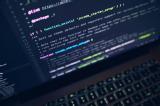Beginner Programming Course: Emphasizing Logical Thinking
Course Overview:
This course is designed to guide beginners through the fundamentals of programming with a strong emphasis on logical thinking and problem-solving. By the end of the course, learners will be able to approach coding problems with a structured and logical mindset, preparing them to tackle more complex programming challenges.
Week 1: Introduction to Programming and Logical Thinking
- Objective:Develop an understanding of programming and introduce basic logical thinking.
- Topics:
- What is programming?Understanding its role in problem-solving.
- The basic flow of a program: Input → Process → Output.
- Logical thinking in programming: Breaking problems into smaller steps.
- Syntax and structure: Introduction to programming syntax, writing the first "Hello, World!" program.
- Problem-solving mindset: Understanding problems before solving them.
- Exercise:Solve a basic problem (e.g., calculate the sum of two numbers) and discuss different approaches.
Week 2: Variables, Data Types, and Basic Operations
- Objective:Learn how to store and manipulate data with variables and perform simple operations.
- Topics:
- Variables and data types: Integers, floats, strings, and booleans.
- Simple operations: Arithmetic (addition, subtraction, multiplication, division).
- Input/Output: Getting input from the user and displaying output.
- Logical thinking exercise: Given two numbers, find the larger one using conditional logic.
- Practice:Create a program that performs basic math operations and displays results.
Week 3: Logical Decision Making with Conditionals
- Objective:Learn to make decisions in code based on conditions and logic.
- Topics:
- Conditionals: if, else, and else if
- Comparison operators: ==, !=, <,>, <=,>=.
- Logical operators: and, or, notfor complex conditions.
- Decision-making exercises: Solve real-world problems (e.g., determine if a number is even or odd, check for positive/negative).
- Logical puzzle:Create a program to find the largest of three numbers using conditionals.
- Practice:Build a simple program that accepts user input and makes decisions based on the input.
Week 4: Repetition and Iteration (Loops)
- Objective:Learn how to repeat actions and solve problems through iteration.
- Topics:
- What is iteration?Understanding loops as a tool for repeating tasks.
- For loops: Looping through a known number of iterations (e.g., counting, generating sequences).
- While loops: Looping based on a condition.
- Break and continue statements: Controlling loop flow.
- Logical thinking exercise:Use a loop to solve problems like summing numbers in a range or counting down from a number.
- Practice:Write a program to calculate the sum of all numbers from 1 to N using a loop.
Week 5: Arrays/Lists and Organizing Data
- Objective:Learn how to organize and manipulate collections of data.
- Topics:
- Arrays/Lists: Storing multiple values in a single variable.
- Accessing and modifying elements: Indexing, slicing, and iterating over lists.
- Logical thinking exercise:Solve problems like reversing a list, finding the maximum number in a list, or summing all numbers in a list.
- Practice:Write a program that sorts a list of numbers in ascending order (using basic sorting algorithms like Bubble Sort).
Week 6: Logical Thinking Through Algorithms
- Objective:Develop logical thinking through simple algorithms.
- Topics:
- What is an algorithm?A step-by-step procedure for solving a problem.
- Introduction to algorithmic thinking: How to break problems into steps.
- Sorting algorithms: Understanding basic sorting algorithms (e.g., Bubble Sort).
- Searching algorithms: Linear search, binary search.
- Time complexity: Basic understanding of algorithm efficiency.
- Logical challenge: Solve a problem using both brute force and optimized solutions (e.g., find the second largest number in an array).
- Practice:Implement a basic sorting algorithm (e.g., Bubble Sort) and analyze its efficiency.
Week 7: Debugging and Improving Logical Thinking
- Objective:Learn how to debug code and improve logical reasoning.
- Topics:
- Debugging techniques: Using print statements, error messages, and the process of elimination.
- Common errors: Syntax errors, runtime errors, and logic errors.
- Logical thinking in debugging: Understanding where and why a program isn't working.
- Practice:Debugging common coding problems.
- Logical puzzle:Solve a logical puzzle (e.g., Sudoku solver) and implement it in code.
- Project preparation: Plan the final project by breaking it down into smaller tasks.
Week 8: Final Project: Building a Solution
- Objective:Apply logical thinking to create a final project.
- Topics:
- Problem decomposition: Breaking down a complex problem into smaller, manageable tasks.
- Project brainstorming: Select a simple project (e.g., a basic calculator, number guessing game, or simple to-do list).
- Logical design: Use flowcharts or pseudocode to plan the project’s logic.
- Building and testing: Write the code and debug any issues.
- Final presentation: Present your project, explaining the logic and steps taken to solve the problem.
- Practice:Demonstrate problem-solving using the skills learned.
Assessment:
- Weekly assignmentsthat test programming skills and logical thinking.
- Mid-term problem-solving challengethat emphasizes logical problem decomposition.
- Final projectto apply everything learned to solve a real-world problem logically.
Logical Thinking Focus:
- Emphasis on breaking problems down: The course will teach students to approach each problem step-by-step and logically plan their solutions.
- Practice with puzzles and exercises: To build reasoning and problem-solving skills, students will regularly work on puzzles and logic-based challenges.
- Iterative improvement: Students will learn how to test, debug, and refine their solutions to optimize for logic and efficiency.
This syllabus is designed to introduce beginners to programming while developing logical thinking in a gradual, accessible way. By solving problems step-by-step and understanding the flow of execution in a program, learners will not only grasp programming basics but also cultivate the mental framework to solve problems logically and effectively.
Let me know if you'd like to expand on any part or adjust for specific needs!





